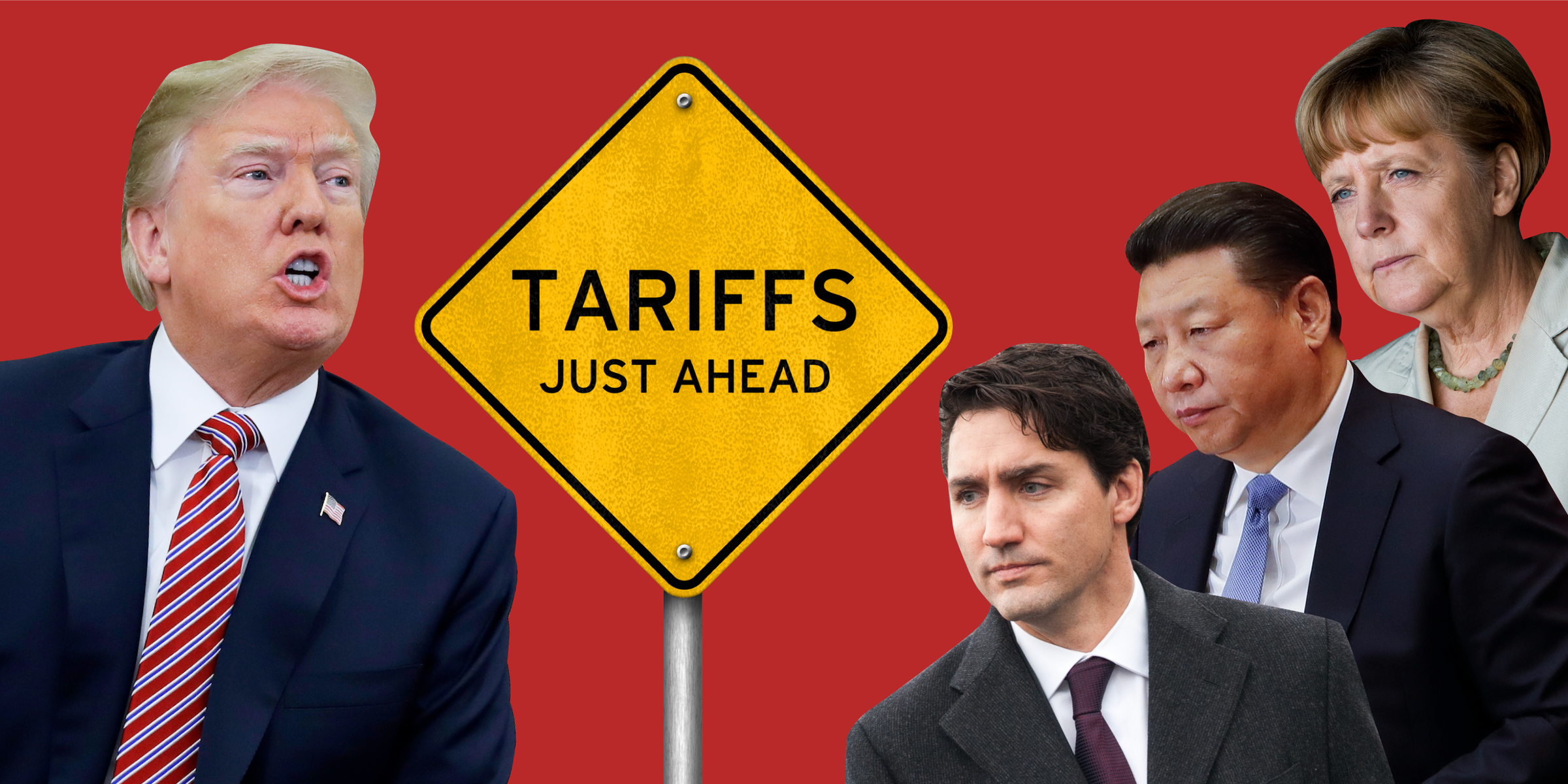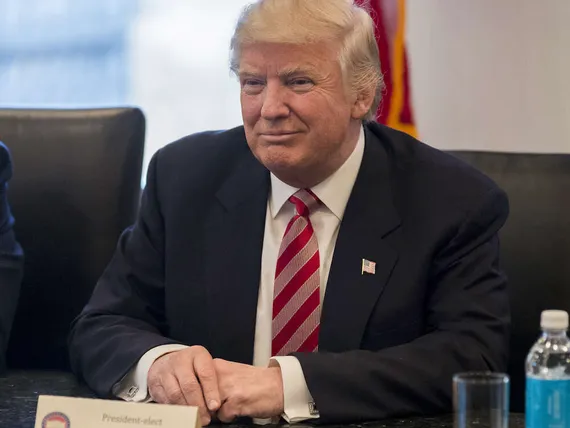Trump Tariffs Resumption: What It Means For Europe's Economy

Table of Contents
Impact on Specific European Industries
The reintroduction of Trump-era tariffs would disproportionately affect several key European industries. Understanding the specific vulnerabilities is crucial for mitigating potential damage.
Automotive Sector
The European automotive sector, particularly in Germany, is heavily export-oriented, making it exceptionally vulnerable to US tariffs. German car manufacturers, for example, export a significant portion of their production to the US market.
- Increased production costs: Tariffs would directly increase the price of European cars in the US, reducing their competitiveness against domestically produced vehicles.
- Reduced competitiveness in the US market: Higher prices could lead to a significant decline in sales and market share for European automakers.
- Potential job losses: Reduced demand and profitability could trigger job cuts across the supply chain, from manufacturing plants to dealerships.
- Retaliatory measures: The EU might respond with its own tariffs on US goods, escalating the trade war and further harming both economies. This could trigger a damaging cycle of retaliatory actions impacting the broader EU auto industry.
Agricultural Sector
Europe's agricultural sector, a cornerstone of many national economies, would also face considerable challenges. Products like wine, cheese, and agricultural machinery are particularly exposed.
- Reduced demand for European agricultural products: Higher tariffs would make European agricultural exports less attractive to US consumers and importers.
- Price fluctuations: Reduced demand could lead to price instability and decreased income for farmers.
- Impact on farmers' income: Farmers reliant on US exports could face significant financial difficulties, potentially requiring government intervention and farm subsidies.
- EU agricultural policy: The EU might need to adjust its agricultural policy to support affected farmers and mitigate the economic fallout. This could involve significant budgetary implications.
Manufacturing Sector
Beyond the automotive and agricultural sectors, the broader European manufacturing sector would feel the impact of renewed tariffs.
- Increased costs for raw materials and finished goods: Tariffs increase the cost of importing raw materials and exporting finished goods, eroding profit margins.
- Relocation of production facilities: Companies might consider relocating production outside of Europe to avoid tariffs, impacting employment and investment.
- Loss of competitiveness: Higher costs make European manufacturers less competitive in the global market.
- Impact on supply chains: Disruptions to supply chain relationships between European and US businesses could have cascading effects throughout the industry.
Macroeconomic Consequences for Europe
The consequences of a Trump Tariffs Resumption extend beyond specific industries, impacting the European economy as a whole.
GDP Growth
The reintroduction of tariffs could significantly dampen Europe's economic growth.
- Reduced consumer spending: Higher prices for imported goods reduce consumer purchasing power, leading to lower spending.
- Decreased business investment: Uncertainty and reduced profitability discourage businesses from investing, slowing down economic expansion.
- Potential recessionary pressures: A combination of reduced consumer spending and investment could increase the risk of a recession. This could have a dramatic effect on European GDP growth.
Inflation and Currency Fluctuations
Higher import costs from tariffs contribute to inflation, while currency fluctuations could exacerbate the situation.
- Increased prices for consumers: Tariffs directly increase the price of imported goods, reducing consumer purchasing power.
- Reduced purchasing power: Inflation erodes the value of wages and savings, negatively impacting household budgets.
- Impact on Euro value against the US dollar: The economic uncertainty could lead to volatility in the Euro's exchange rate, making European exports more expensive and imports cheaper.
- Potential for currency wars: If the EU retaliates with its own tariffs, it could trigger a damaging currency war between the US and the Eurozone. This poses a significant threat to inflation in Europe.
Geopolitical Implications
The resumption of tariffs would have far-reaching geopolitical implications.
- Strained transatlantic relations: Renewed tariffs would severely damage the already fragile relationship between the EU and the US.
- Increased reliance on alternative trading partners: Europe might seek to diversify its trade relationships, reducing its dependence on the US market.
- Potential for new trade agreements: The EU might actively pursue new trade agreements with other countries to compensate for reduced US trade. This underscores the significant geopolitical risks inherent in a trade war.
European Union's Response Strategies
The EU will likely implement several strategies to counter the impact of renewed tariffs.
Retaliatory Measures
The EU might impose its own tariffs on US goods.
- Examples of potential target goods: The EU could target US agricultural products, manufactured goods, or other sectors vulnerable to tariffs.
- Economic impact on US industries: Retaliatory tariffs could damage specific US industries, potentially escalating the trade conflict.
- Escalation of trade tensions: Such measures could lead to further retaliatory actions from the US, worsening the trade dispute. This illustrates the delicate balance required in trade negotiations.
Support for Affected Industries
To mitigate the economic impact, the EU may provide various forms of support to its industries.
- Financial aid: Direct financial assistance could help struggling businesses stay afloat.
- Tax breaks: Tax incentives might encourage investment and job creation.
- Retraining programs: Programs to retrain workers in affected industries could help them transition to new jobs.
- Diversification strategies: The EU could promote policies encouraging businesses to diversify their export markets to reduce reliance on the US. These measures highlight the importance of government intervention in mitigating the effects of the Trump Tariffs Resumption.
Conclusion
The potential resumption of Trump-era tariffs poses a significant threat to the European economy. The impact would be felt across various sectors, leading to reduced growth, increased inflation, and potentially strained transatlantic relations. The uncertainty surrounding the situation underscores the need for careful preparation and proactive response strategies.
Understanding the potential implications of a Trump Tariffs Resumption is crucial for businesses and policymakers alike. Stay informed about the evolving situation and prepare for potential economic adjustments. Further research into the specific impacts on your industry is strongly recommended.

Featured Posts
-
 As Roma Elimina Fc Porto Si Se Califica In Optimile Europa League
May 13, 2025
As Roma Elimina Fc Porto Si Se Califica In Optimile Europa League
May 13, 2025 -
 Onko Trumpin Politiikka Auttanut Byd Tae Ohittamaan Teslan
May 13, 2025
Onko Trumpin Politiikka Auttanut Byd Tae Ohittamaan Teslan
May 13, 2025 -
 Ian Mc Kellens Coronation Street Unveiling A Little Known Role
May 13, 2025
Ian Mc Kellens Coronation Street Unveiling A Little Known Role
May 13, 2025 -
 Byds Global Ambitions Half Its Car Sales Outside China By 2030
May 13, 2025
Byds Global Ambitions Half Its Car Sales Outside China By 2030
May 13, 2025 -
 How To Train Your Dragon Live Action Near Miss With A Controversial Choice
May 13, 2025
How To Train Your Dragon Live Action Near Miss With A Controversial Choice
May 13, 2025
Latest Posts
-
 Final Seals Find New Homes As Pieterburen Rescue Center Closes
May 13, 2025
Final Seals Find New Homes As Pieterburen Rescue Center Closes
May 13, 2025 -
 Pieterburen Seal Rescue Center A 50 Year Legacy Concludes
May 13, 2025
Pieterburen Seal Rescue Center A 50 Year Legacy Concludes
May 13, 2025 -
 Heavy Traffic Expected Schiphol Roads And Ferries During Easter And Spring Holiday Peak
May 13, 2025
Heavy Traffic Expected Schiphol Roads And Ferries During Easter And Spring Holiday Peak
May 13, 2025 -
 Schiphol Road And Ferry Travel Peak Day Predictions For Easter And Spring Break
May 13, 2025
Schiphol Road And Ferry Travel Peak Day Predictions For Easter And Spring Break
May 13, 2025 -
 Plan Ahead Easter And Spring Holiday Peak Travel Days At Schiphol Roads And Ferries
May 13, 2025
Plan Ahead Easter And Spring Holiday Peak Travel Days At Schiphol Roads And Ferries
May 13, 2025
